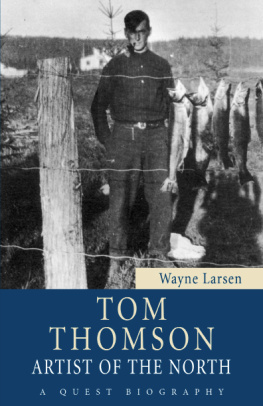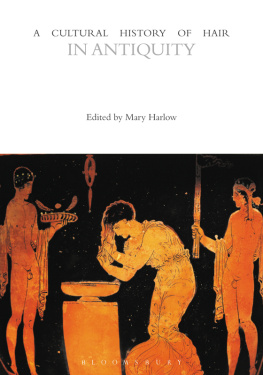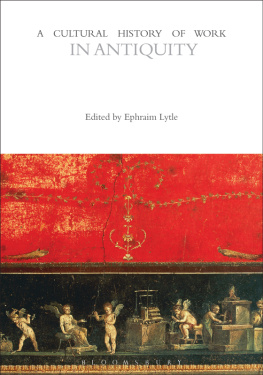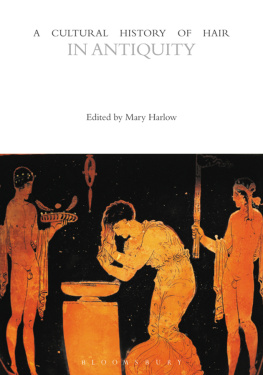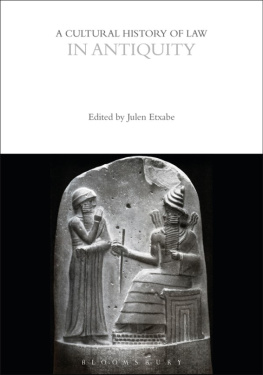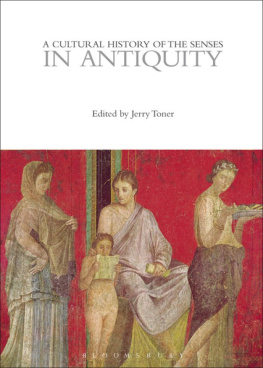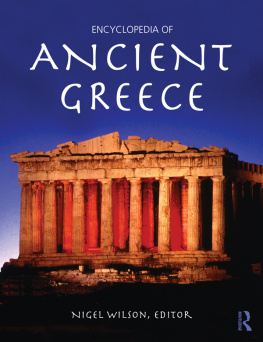A CULTURAL HISTORY
OF TRAGEDY
VOLUME 1
A Cultural History of Tragedy
General Editor: Rebecca Bushnell
Volume 1
A Cultural History of Tragedy in Antiquity
Edited by Emily Wilson
Volume 2
A Cultural History of Tragedy in the Middle Ages
Edited by Jody Enders, Theresa Coletti, John T. Sebastian, and Carol Symes
Volume 3
A Cultural History of Tragedy in the Early Modern Age
Edited by Naomi Liebler
Volume 4
A Cultural History of Tragedy in the Age of Enlightenment
Edited by Mitchell Greenberg
Volume 5
A Cultural History of Tragedy in the Age of Empire
Edited by Michael Gamer and Diego Saglia
Volume 6
A Cultural History of Tragedy in the Modern Age
Edited by Jennifer Wallace
CONTENTS
NOTES ON CONTRIBUTORS
Rosa Andjar is Deputy Director of Liberal Arts and Lecturer in Liberal Arts at Kings College London. She is the co-editor of two volumes which address her two main areas of research: Paths of Song: the Lyric Dimension of Greek Tragedy (2018) and Greeks and Romans on the Latin American Stage (forthcoming, Bloomsbury). She is currently completing a monograph on the tragic chorus entitled Playing the Chorus: Greek Tragedy Beyond the Choral Ode.
Austin Busch is Associate Professor of Early World Literature and Associate Director of the Honors College at the College at Brockport. He has published articles on Latin poetry and drama, as well as on the New Testament and other early Christian literature. He co-edited the New Testament and Apocrypha volume of the Norton critical edition of the King James Bible.
Robert Cowan is Senior Lecturer in Classics at the University of Sydney, having previously held posts in Exeter, Bristol, and Oxford. His research interests range over much of Greek and Latin poetry, and he has published on Sophocles, Aristophanes, Plautus, Lucretius, Catullus, Cicero, Cinna, Ticida, Virgil, Horace, Ovid, Seneca, Columella, Martial, Suetonius, and Juvenal, as well as ancient graffiti and the operatic reception of Greek tragedy. However, his main specialisms are Imperial epic and Republican tragedy.
Kirk Ormand is the Nathan A. Greenberg Professor of Classics at Oberlin College. He is the author of Exchange and the Maiden: Marriage in Sophoclean Tragedy (1999), Controlling Desires: Sexuality in Ancient Greece and Rome (2009), and The Hesiodic Catalogue of Women and Archaic Greece (2014), editor of A Companion to Sophocles (2012) and co-editor (with Ruby Blondell) of Ancient Sex: New Essays (2015). He has published articles on Homer, Hesiod, Hipponax, Sophocles, Euripides, Ovid, Lucan, the Greek novel, Clint Eastwoods Unforgiven, and Michel Foucault.
Isabelle Torrance is Associate Professor of Classics and Research Fellow at the Aarhus Institute of Advanced Studies, Aarhus University, Denmark. She is author of Aeschylus: Seven Against Thebes (2007), Metapoetry in Euripides (2013), Euripides (2019), Euripides: Iphigenia among the Taurians (2019), and co-author of Oaths and Swearing in Ancient Greece (2014).
Eirene Visvardi is an Associate Professor of Classical Studies at Wesleyan University. She works on Greek drama and its role in ancient intellectual and political life. She is the author of Emotion in Action: Thucydides and the Tragic Chorus (2015). She is currently working on a book on utopian and dystopian thinking. She is also interested in the rhetoric of confession and the different fictional and institutional contexts for its performance both in antiquity and today.
Naomi Weiss is Assistant Professor in the Department of the Classics at Harvard University. She is the author of The Music of Tragedy: Performance and Imagination in Euripidean Theater (2018) and is currently working on a book about the aesthetics of theatrical spectatorship in classical Athens.
Marcel Widzisz has taught Classics at the University of Exeter (UK), the University of Houston, Boston University, Rice University, St. Johns College at Annapolis, and, most recently, Southern Virginia University where he has started both a minor and major in Classical Studies. His research interests include Greek tragedy, Homer, Greek religion, and Roman Comedy.
Emily Wilson is a Professor of Classical Studies and Chair of the Program in Comparative Literature at the University of Pennsylvania. She is the author of Mocked with Death: Tragic Overliving from Sophocles to Milton (2005) as well as books on Socrates and Seneca and verse translations of Six Plays of Seneca, four tragedies of Euripides (in The Greek Plays, 2016), Oedipus Tyrannos (forthcoming), and the Odyssey (2017).
SERIES PREFACE
A cultural history of tragedy faces a daunting task: how to address tragedys influence on Western culture while describing how complex and changing historical conditions have shaped it over two and a half millennia. This is the first study with such an extensive scope, investigating tragedys long-lived cultural impact and accounting for its material, social, political, and philosophical dimensions.
Since antiquity, tragedy has appeared in a myriad of forms, reinvented in every age. It has been performed as opera, dance, film, and television as well as live theater. From the beginning, concepts of tragedy have also surfaced in other literary genres such as narrative poetry and novels, as well as in non-literary forms, including journalism, visual art, and photography. Tragedy never appears in a vacuum: the conditions of performance and production and its communal functions always affect its form and meaning. Tragedy has never belonged solely to elite culture, and who creates and consumes these forms of tragedy also makes a difference. Not only has the status of tragedys producersthe writers, actors, artists, and performersevolved over time, but so has the nature of the audiences, viewers, and readers as well, all significantly affecting tragedys aesthetic and social impact.
Tragedy also does more than simply represent or perform human catastrophe or suffering; it is a mode of thought, a way of figuring the human condition as a whole. Philosophers and social and cultural theorists from Plato to Lacan have long pondered the idea of the tragic, while in turn literary models have influenced philosophy, social thought, and psychoanalysis. Tragedy has always had a complex relationship with religion and ritual practices, both complementing and conflicting with religious orthodoxies concerning fate, the power of the gods, and the meaning of suffering. At the same time, since its earliest staging in fifth-century Athens as a civic as well as religious event, tragedy has both echoed and challenged relationships of power and political events in societies experiencing conflict or change.





